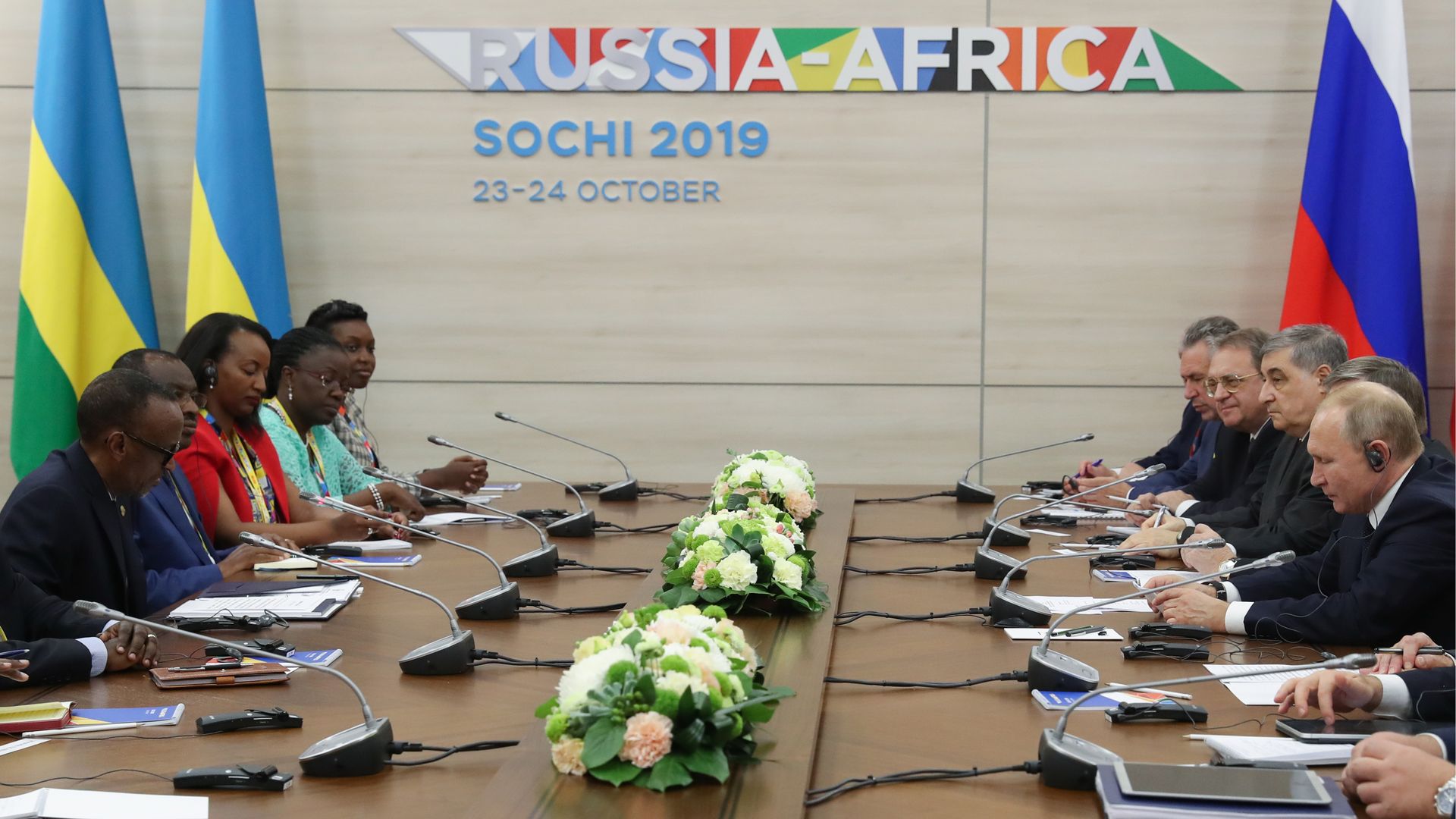
Russia's late October summit with African leaders in Sochi took place amid a renewed global scramble among foreign powers for influence on the continent.
Why it matters: Increased competition holds promise for Africa. Not only will foreign investment — which rebounded last year after a recent downturn — rise, but African countries can be more selective about deal terms while diversifying their partnerships beyond currently dominant powers such as China.
Driving the news: Russia had shown scant interest in Africa since the fall of the Soviet Union, but it announced $12.5 billion in investments at the summit in Sochi. Most are memorandums of understanding focused on arms, its largest export to Africa.
- In 2017, Russian-African trade surged to $17.4 billion, up significantly from $5.7 billion in 2009. Although Russia’s trade volumes with Africa are relatively tiny, exports represent a larger share of its GDP than China's or India's.
Context: Political instability has spurred an upheaval in international trade flows and pushed nontraditional trading partners to pursue Africa as a new market.
- In 2018, the Trump administration launched Prosper Africa, an initiative to increase U.S. trade and investment on the continent. It will be buoyed by the new U.S. Development Finance Corporation, which can invest in equity and at higher amounts in African companies, making the U.S. private sector more competitive.
- Japan held its seventh Tokyo International Conference on African Development in August. Over the last three years, Japanese companies have invested $20 billion on the continent, and Prime Minister Shinzo Abe has pledged to continue boosting private investment.
- China has curried favor with African governments by committing $60 billion in investment and building large infrastructure projects through its Belt and Road Initiative. Beijing has also made heavy "soft power" investments in media and education.
Yes, but: There are drawbacks to the worldwide attention.
- Russia’s embrace of authoritarian leaders in Africa and military support in volatile countries like the Central African Republic and Guinea could sow political instability.
- China’s opaque financing of large infrastructure projects, such as Kenya’s “railroad to nowhere,” raises questions about the sustainability of Africa’s debt levels and fears that China could seize vital infrastructure assets.
What to watch: More high-profile summits and initiatives are likely to follow, given the projected growth rates of Africa's population and economy. Next up is the U.K.-Africa Investment Summit in January 2020, followed by the European Union's summit with the African Union.
Paulo Gomes is the founder of Constelor Investment, an investment management firm, and a co-founder of New African Capital Partners.







